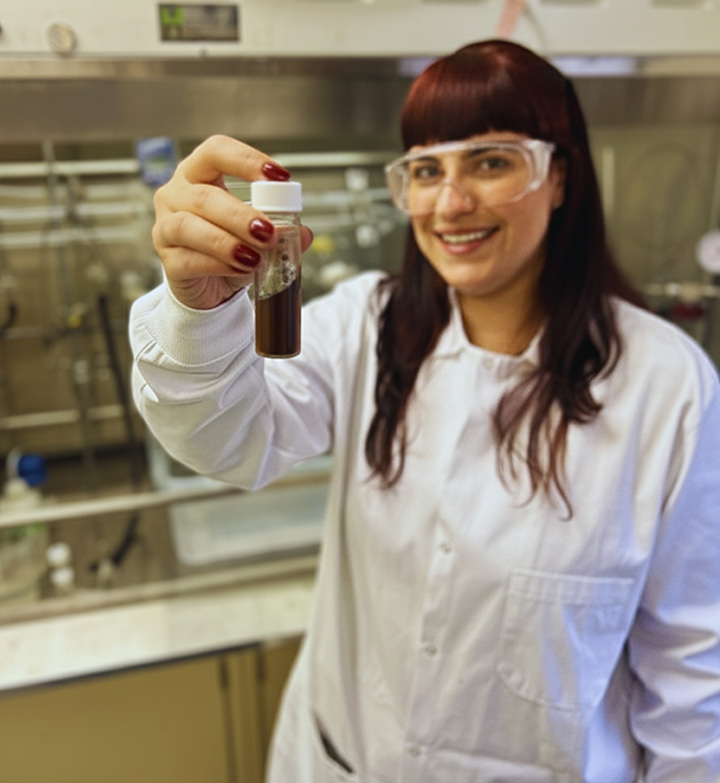In 2022, when University of Alberta chemistry researcher Dr. Robin Hamilton was searching for a better way to convert bitumen to synthetic crude oil, he unintentionally stumbled upon a chemical reaction that was unbelievable at first: he put a low-cost, non-toxic and plentiful material in water, and hydrogen started bubbling to the surface at room temperature.
The finding led to the launch of Dark Matter Materials Inc., a spinoff of nanomaterial manufacturer Applied Quantum Materials (AQM) that Hamilton co-founded with AQM CEO Dr. David Antoniuk and University of Alberta professors Drs. Jeff Stryker and Jonathan Veinot to further investigate the compound.
Their made-in-Canada nano catalyst has several breakthrough applications, from supporting low-cost, environmentally friendly production of hydrogen and ammonia or creating a closed loop circular economy for polyester recycling, to efficiently powering solid state batteries or effectively breaking down all types of plastics, including PVC, nylon, polyethylene, Teflon and Kevlar. It also has the potential to turn oilsands tailings ponds into clean water with hydrogen gas as a fuel by-product.
“We’re amazed at what this material can do,” says Dr. Antoniuk, whose team has already successfully filed two patents with three more pending and are in active discussions with global companies to start industrial pilots to demonstrate the product’s potential. “It’s breaking all the boundaries and limitations of thermocatalytic water splitting that have been around for decades, and the real beauty is there’s no need for expensive critical minerals or high energy, and no release of harmful greenhouse gas emissions in any of our processes.”
The early-stage company owes its success, in part, to Mitacs, an innovation organization that connects businesses and researchers to drive collaboration, deploy skilled talent and build innovation capacity to strengthen Canada’s productivity and global competitiveness.
The team is tapping into the expertise of Mitacs’ post-doctoral researcher and chemist Dr. Mariana Vieira – who received her PhD in chemistry at Federal University of Espirito Santo in Brazil – and working with the University of Alberta to characterize, test and evaluate its catalyst for a variety of applications without incurring a hefty research and development expense.
“We’re working with nanomaterials that are not easily understood, so we need access to very complicated and expensive equipment that only the university has,” explains Dr. Antoniuk. “The researchers come up with the wild and crazy ideas about what’s possible, and then we provide the economic analysis and business acumen to steer them in the direction that makes the most sense.”
Dr. Antoniuk concludes, “The reality is, we have multiple viable paths to commercialization and they’re all showing promise.” He adds that they haven’t encountered any hindrances to scaling the innovation yet. “The next step is to do the engineering required to put this discovery into a commercial system.”







